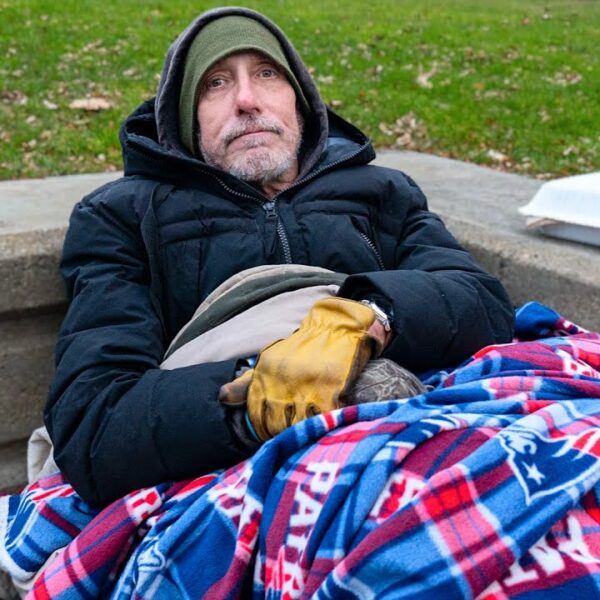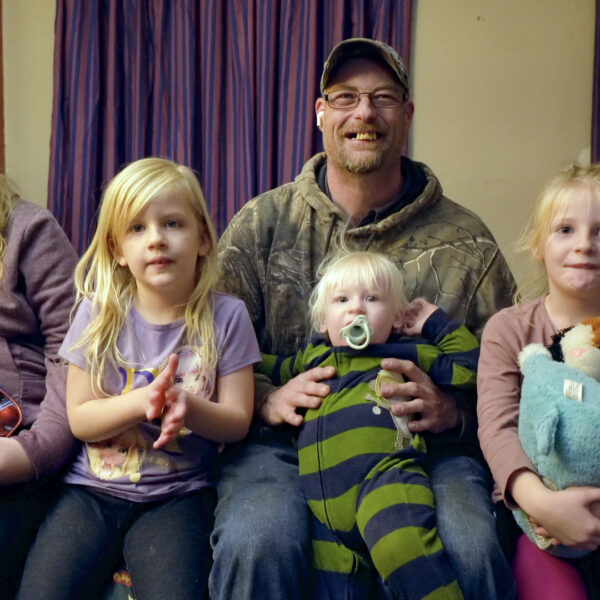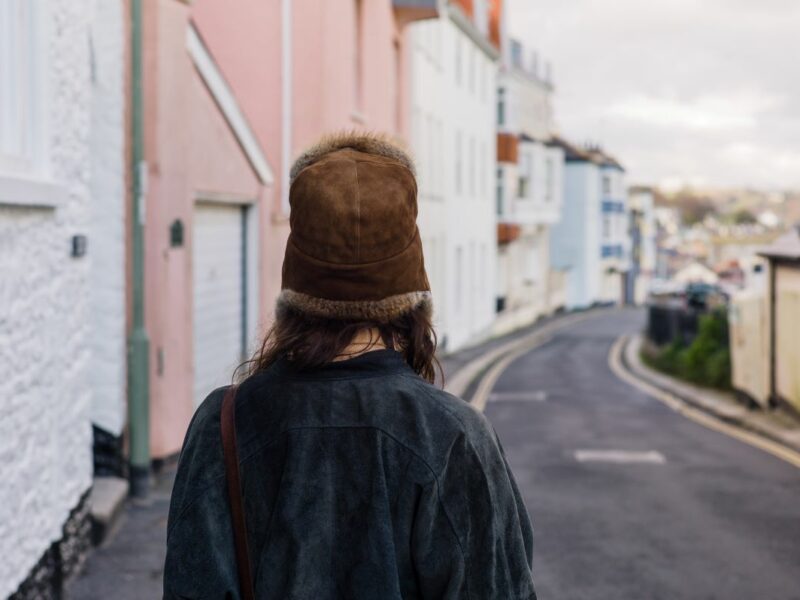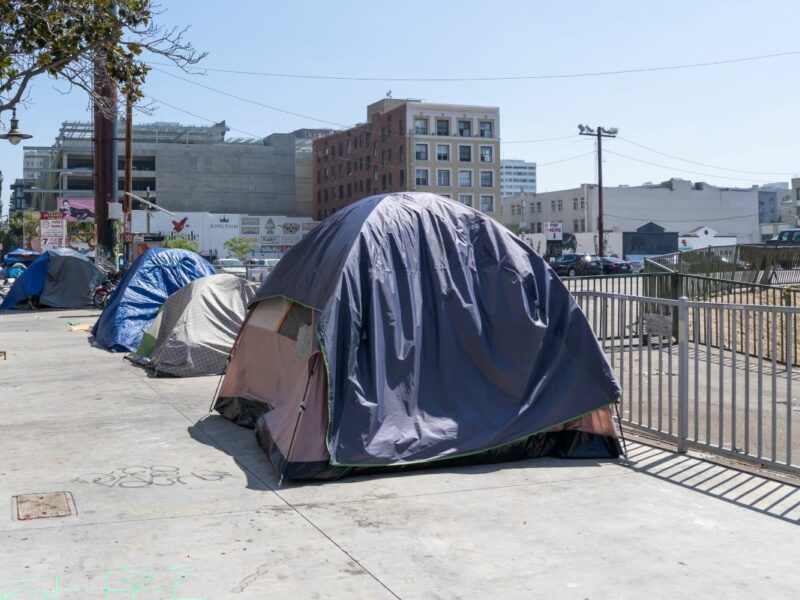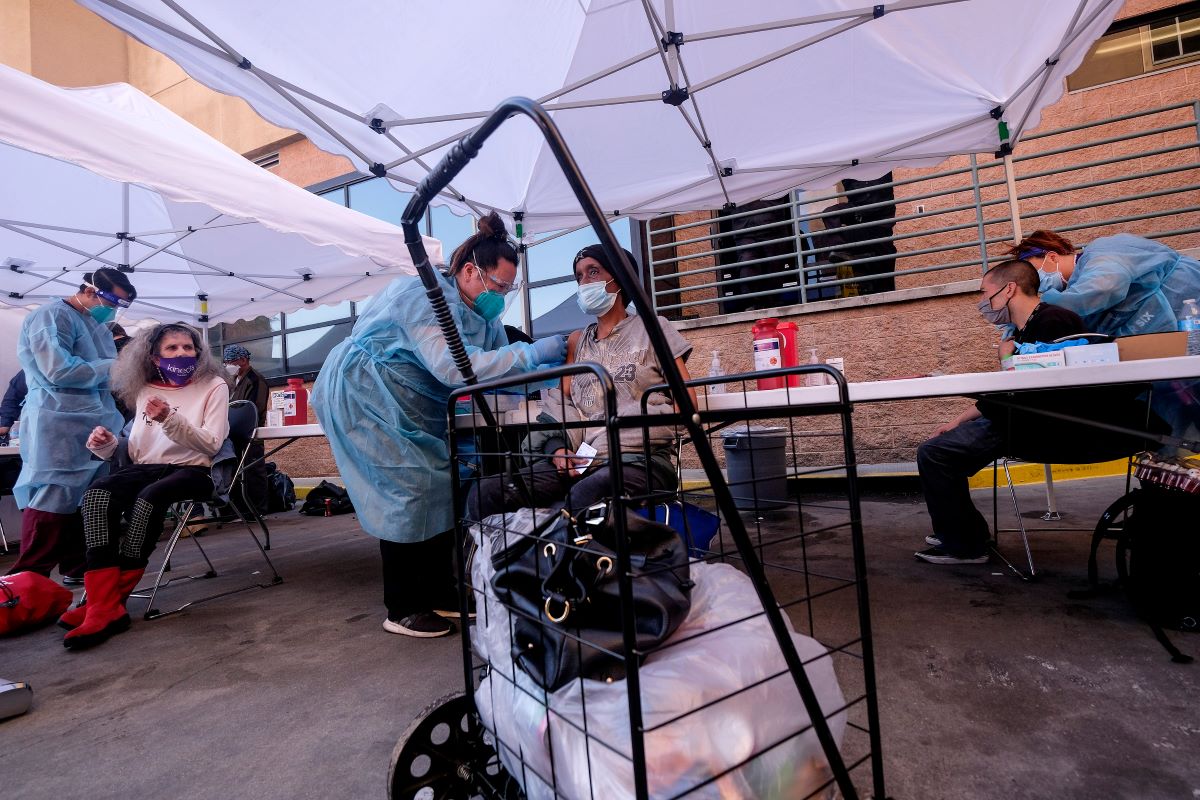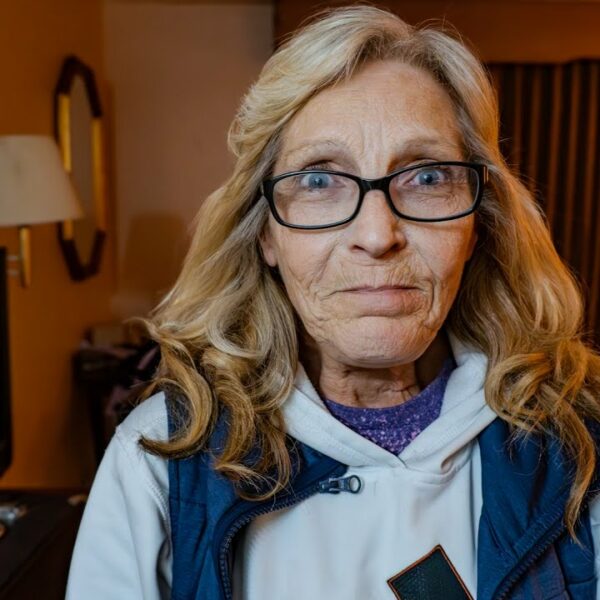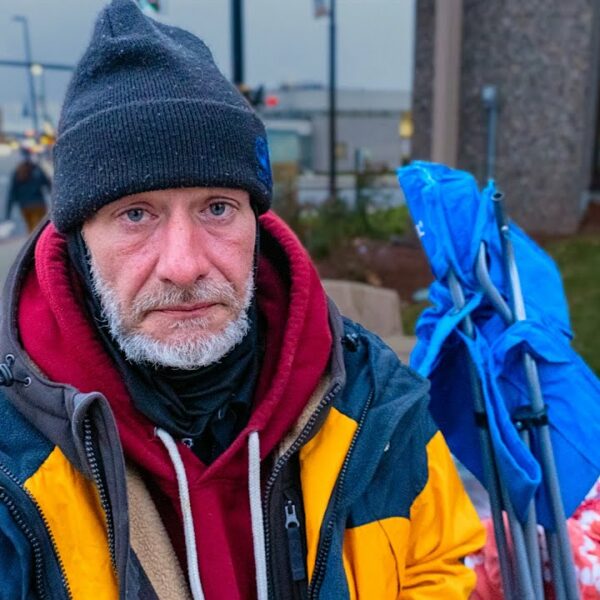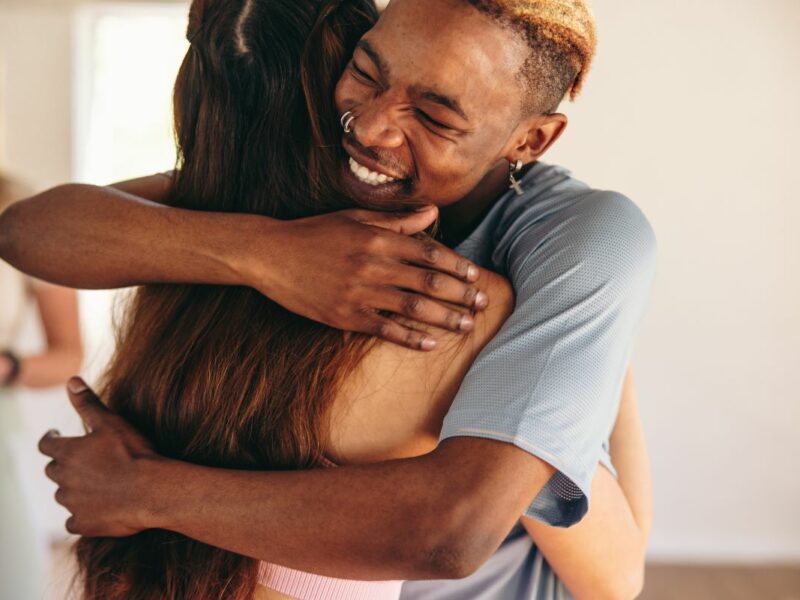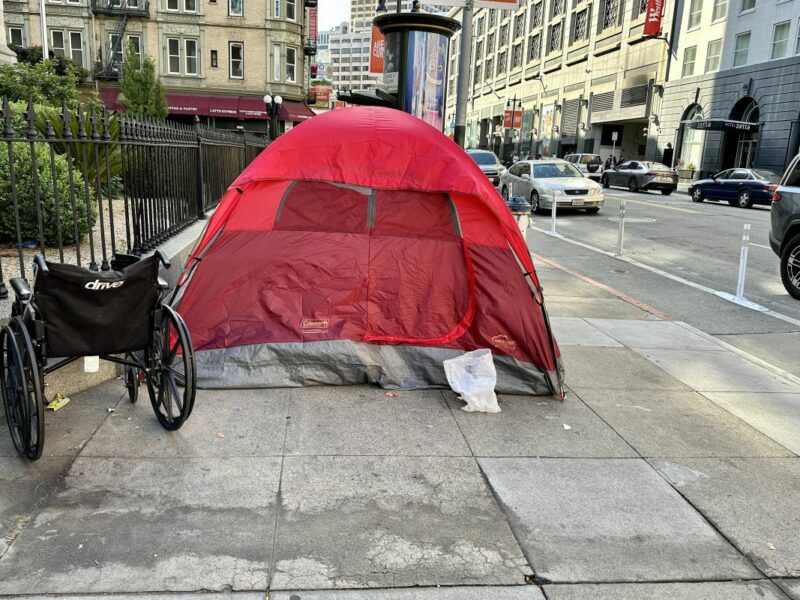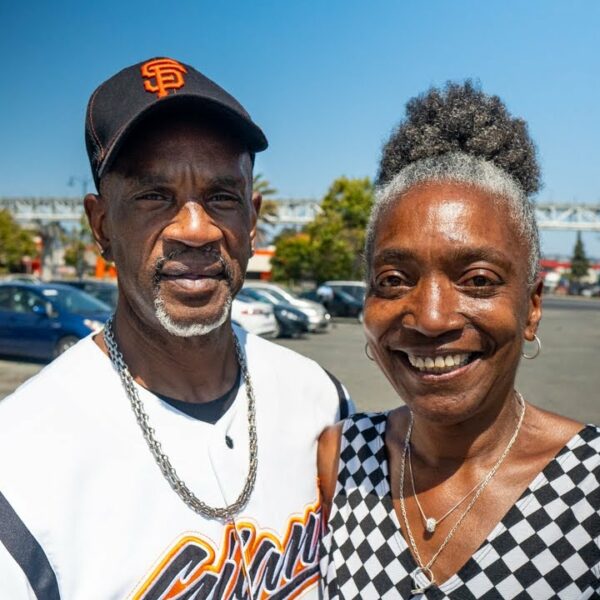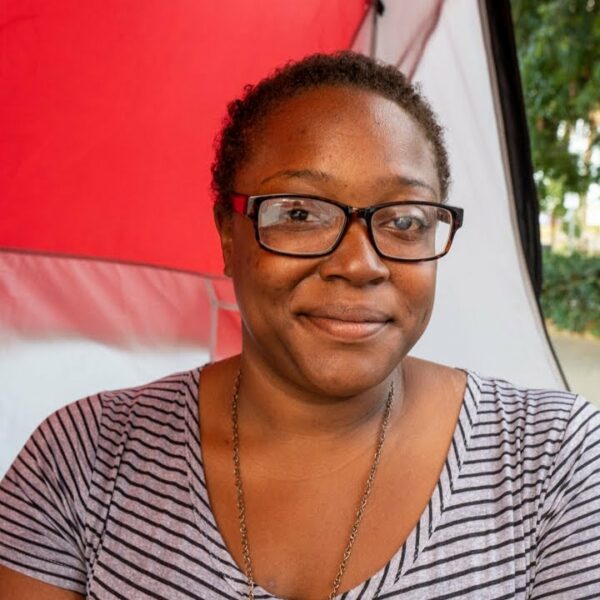In many areas around the United States, COVID-19 vaccines are becoming accessible to more people every day. As of mid-April, about a quarter of the total U.S. population has been fully vaccinated. White House data shows approximately 3.3 million doses were given daily April 7-13. Most states have expanded eligibility for everyone over the age of 16.
This is all good news, especially for homeless Americans who have not been a high priority for vaccine distribution in many states, despite data suggesting their vulnerability to the illness. Communal living spaces like homeless shelters don’t always allow for social distancing. People who don’t have a place of their own cannot comply with the government “stay at home” orders.
Homeless people are also more likely to suffer from health concerns due to:
- a lack of healthcare options
- problems gaining access to nutritional food
- unsanitary living conditions
- stress and other factors
In some instances, medical issues can themselves be the cause of someone becoming homeless.
Even so, giving vaccines to people experiencing homelessness was not a priority at the start of the vaccine rollout. Oregon is among the states with the highest number of homeless people in the country. Yet homeless people under the age of 65 were among the last people to be eligible to receive the vaccine.
Homeless people in North Carolina were initially near the top of the rollout list. However, they were later pushed down the line, upsetting local activists.
Problems Beyond Eligibility
Most unhoused people are now eligible to receive vaccines. But there are still some complications with getting them vaccinated. Some fear homeless people may not trust a vaccine or think it’s essential to get one.
Some of this mistrust comes from valid concerns. Unfortunately, many people in low socioeconomic brackets, and people of color, have not had good interactions with medical providers in the past. There hasn’t been enough public messaging about how safe these vaccines are, especially to unhoused people.
A Seattle Times article describes a vaccination center at a homeless shelter in Seattle that had a challenging time recruiting people to get shots. Data showed about half of Seattle’s homeless shelter population was unsure about getting the vaccine, if they got it at all.
And if unhoused people want the vaccine, they may not be able to get to mass vaccine sites that often require you to be in a car or schedule their appointment online. That’s why it’s imperative to bring the vaccine to people where they are, at shelters or to accessible neighborhoods.
Figuring out Solutions
Cities across the country have used creative solutions to overcome barriers preventing homeless people from getting vaccinated.
In Salt Lake City, officials set up a vaccine clinic at a downtown facility that provides healthcare for homeless people. One incentive for unhoused people to get their vaccine was a $5 Walmart gift card the center gave them once they got it.
In New York, officials use a mobile vaccine bus to reach the city’s most vulnerable populations where they are.
“This will take the vaccinations right to them,” New York City Mayor Bill de Blasio said at a press conference.
Nashville homeless activists and health agencies have made it their goal to have all of the city’s unhoused population vaccinated by the end of May, using mobile clinics and approaching people in the park.
With campaigns to spread accurate information about the vaccines’ safety and how to get one, cities can help their most vulnerable residents access shots, helping the area with greater herd immunity in the process.
Problems with Johnson & Johnson
All of the above tactics work best when administering the Johnson & Johnson vaccine, which requires only one dose instead of the two that the Pfizer and Moderna vaccines necessitate. This makes it more convenient for people without permanent shelter who don’t always have the means to return to a specific site for the second dose.
The Johnson & Johnson vaccine is also more low maintenance. Providers can store it in a regular refrigerator, unlike the Pfizer and Moderna vaccines, which require extremely cold freezers, so it’s easier to transport in a mobile vaccine clinic.
Unfortunately, some very rare side effects found in the Johnson & Johnson vaccine have spurred public health officials to pause administering the shot. This is causing municipalities to rethink how they’ll help their unhoused communities achieve COVID-19 immunity. Many worry more people will hesitate to get vaccinated at all, even if it’s eventually found to be safe.
“Assuming it is ultimately found to be safe and effective, it will be harder to convince people — especially people experiencing homelessness — that it is safe,” said Bobby Watts, CEO of the National Health Care for the Homeless Council.
Dr. Fauci said he hoped to resume administering the Johnson & Johnson vaccine soon. Still, the delay will likely impact homeless communities profoundly. It will be necessary to make up for it in other ways.
Ultimately, it’s vital to keep in mind that our homeless neighbors are part of our communities. Those of us with easy access to reliable information about vaccines and the ability to get ourselves to appointments are lucky. This is not a time to give up on COVID-19 safety measures. Even if we’re fully vaccinated, many people still have barriers before they can relax.



